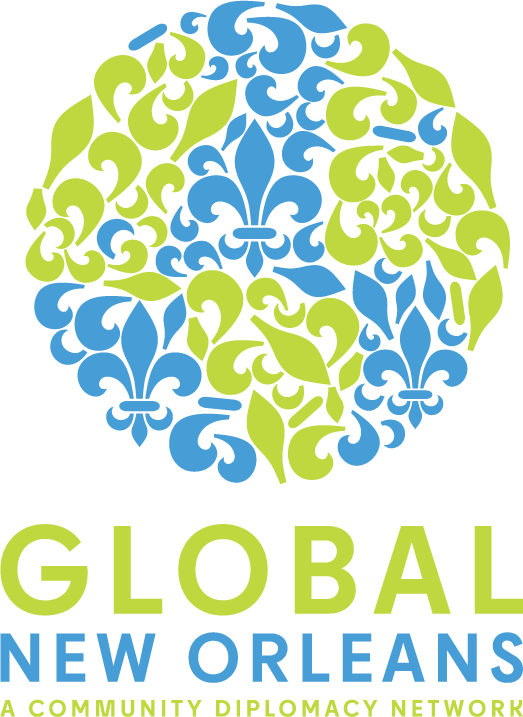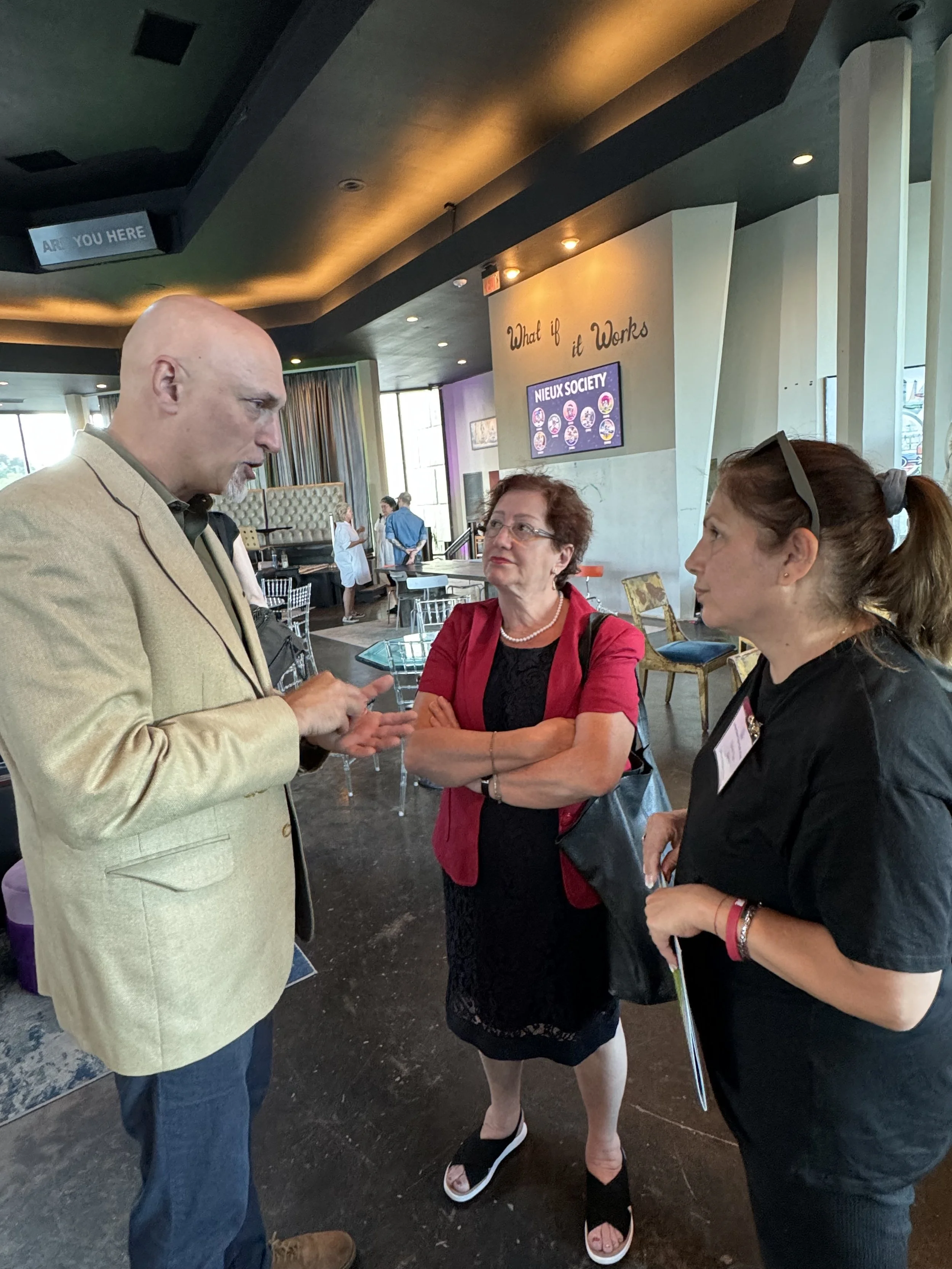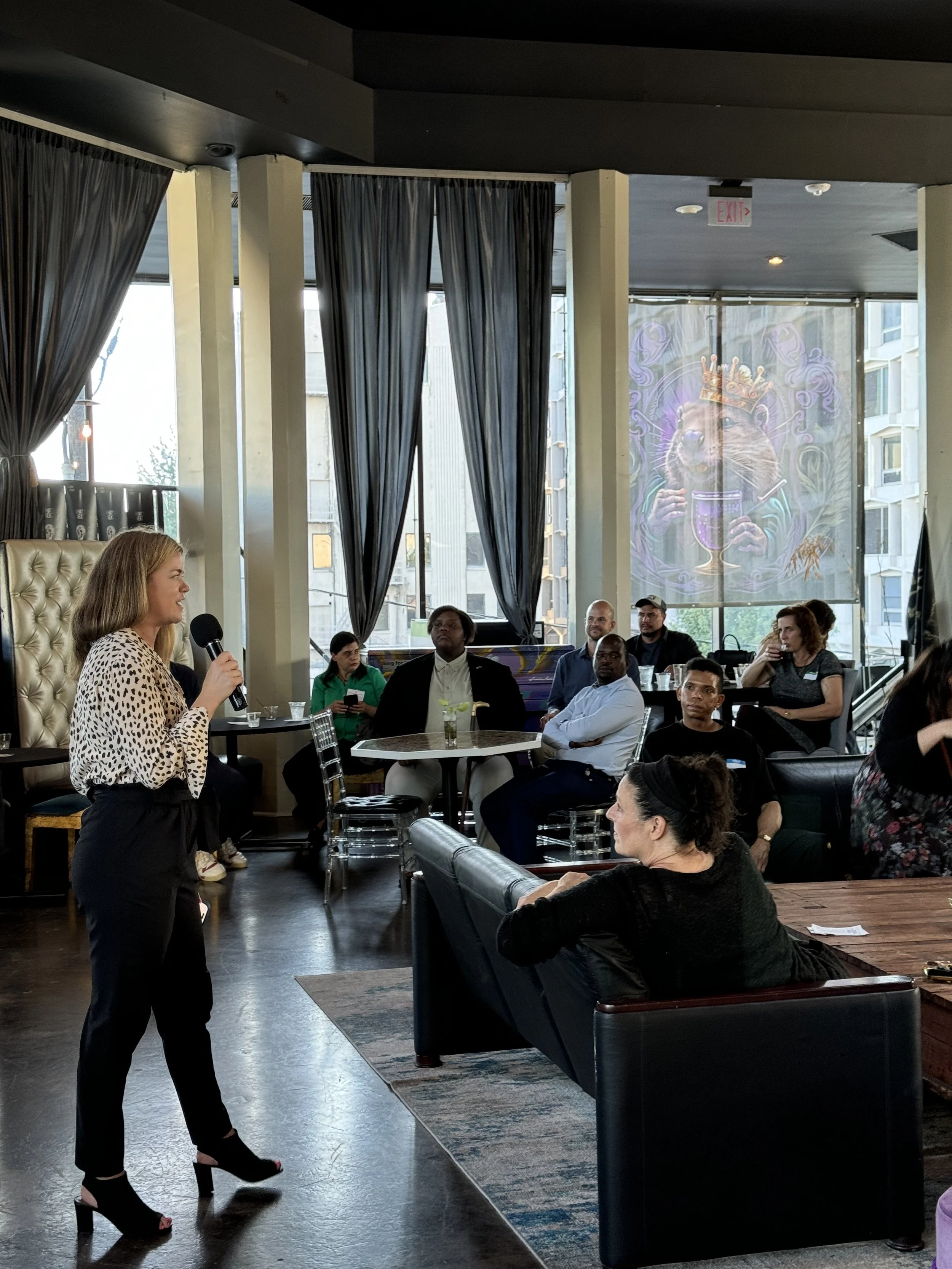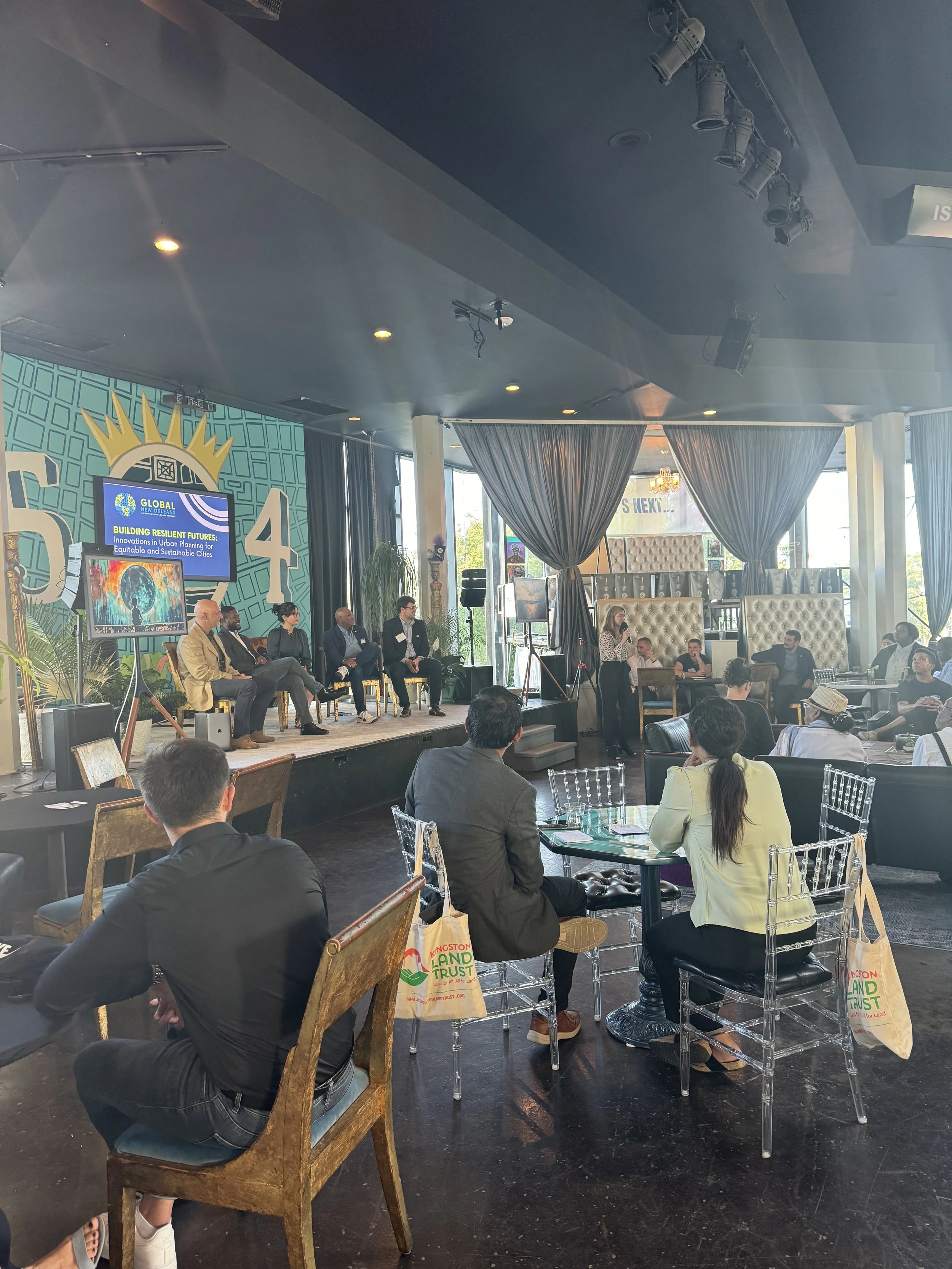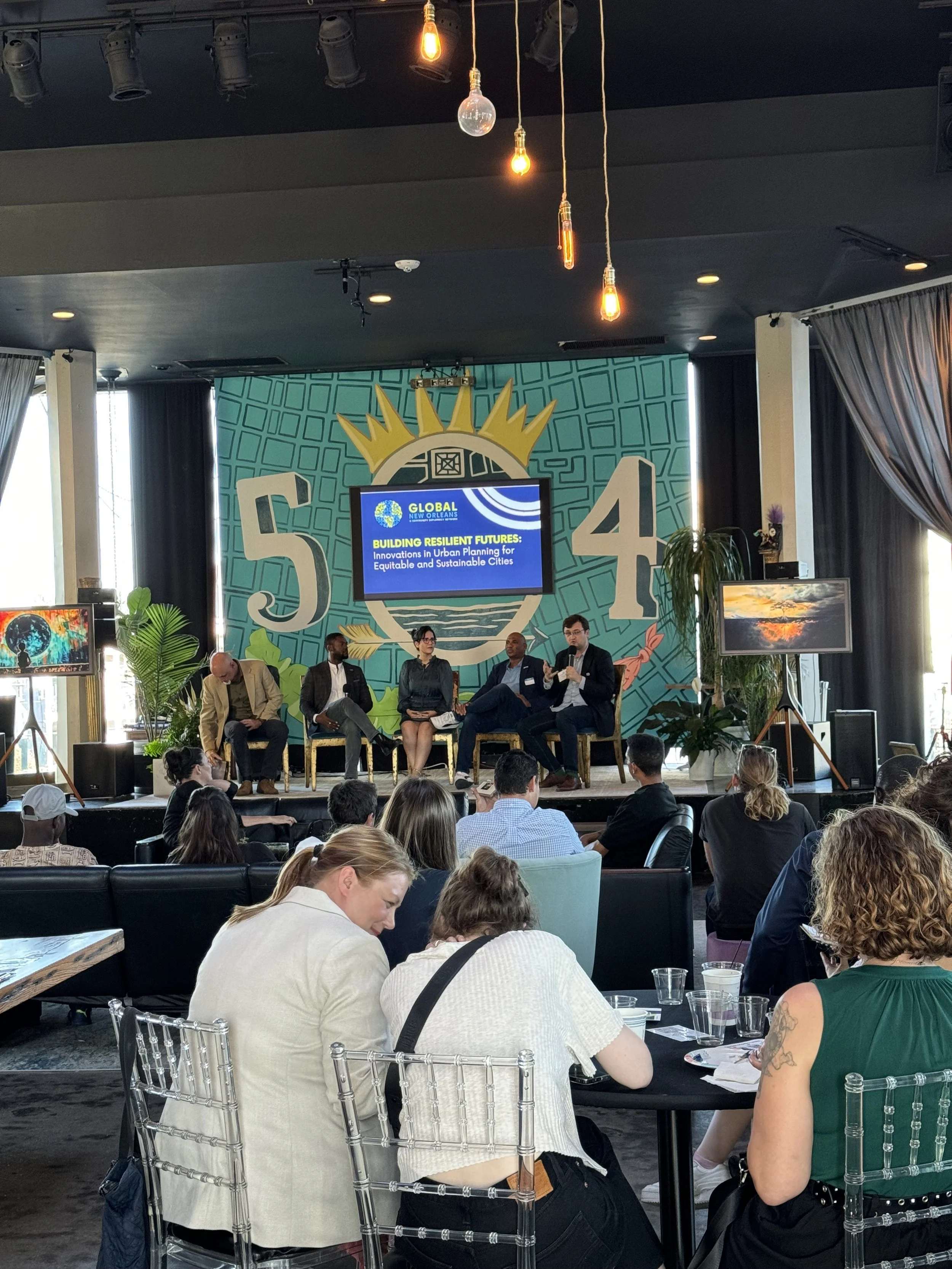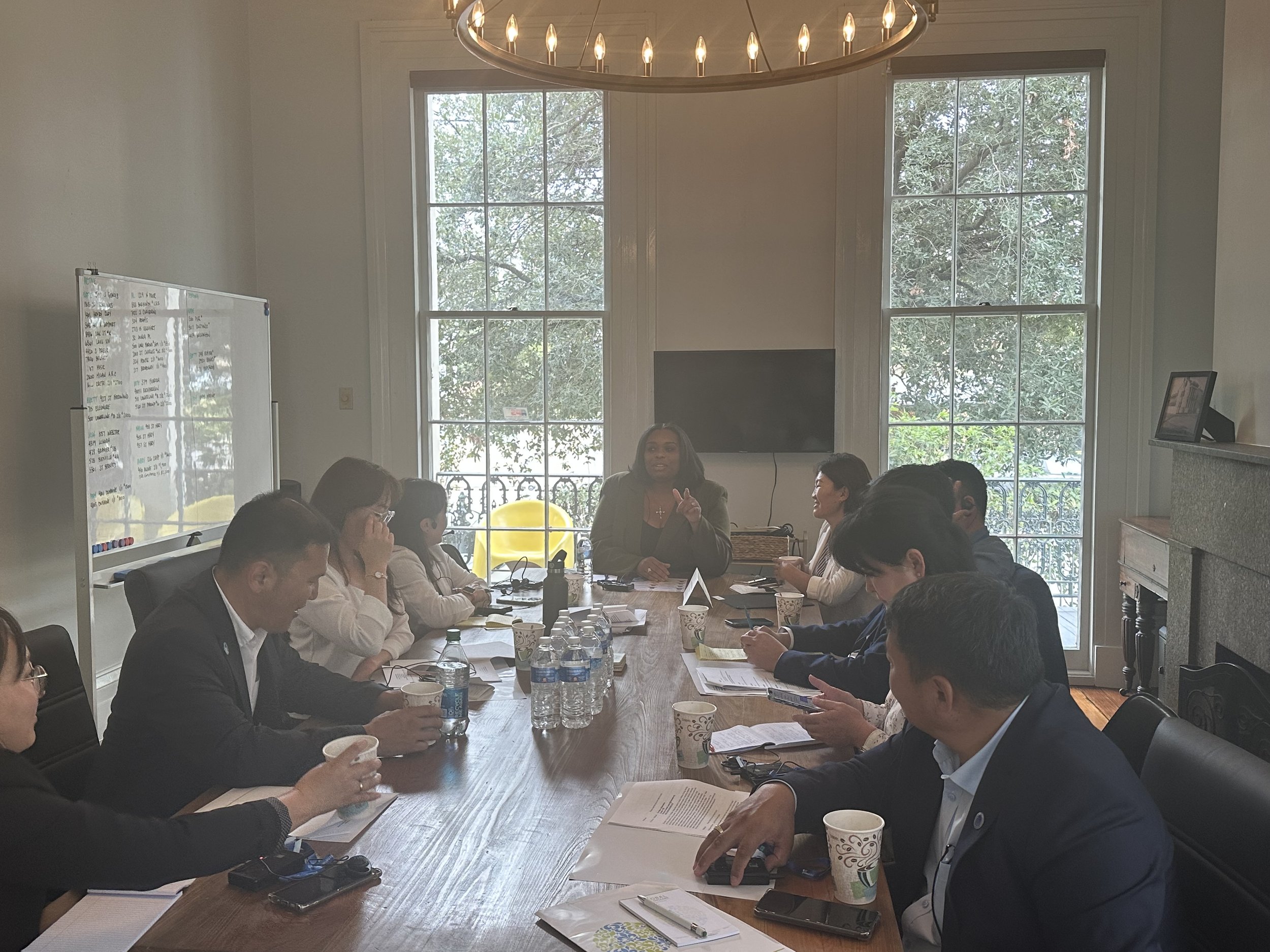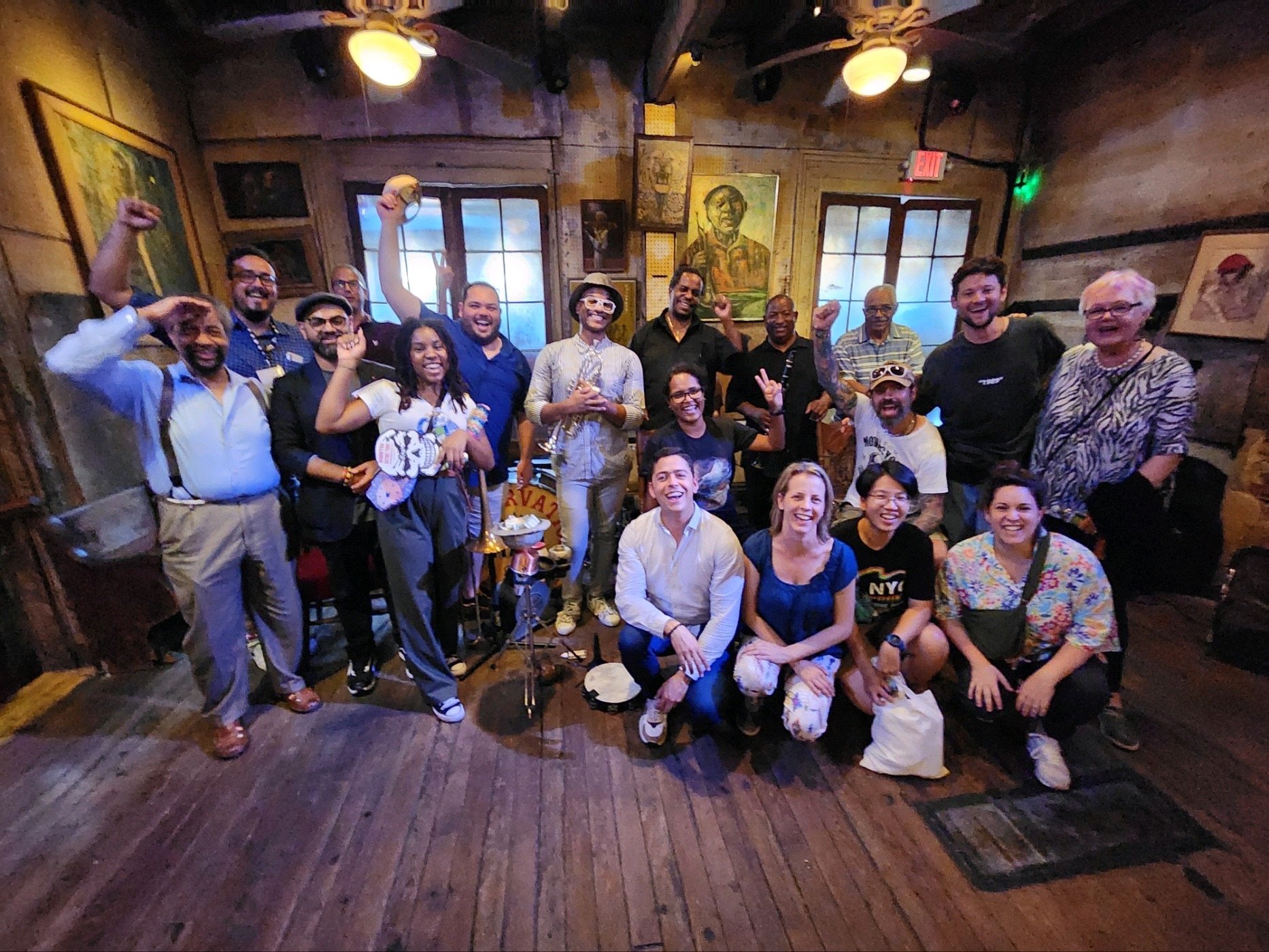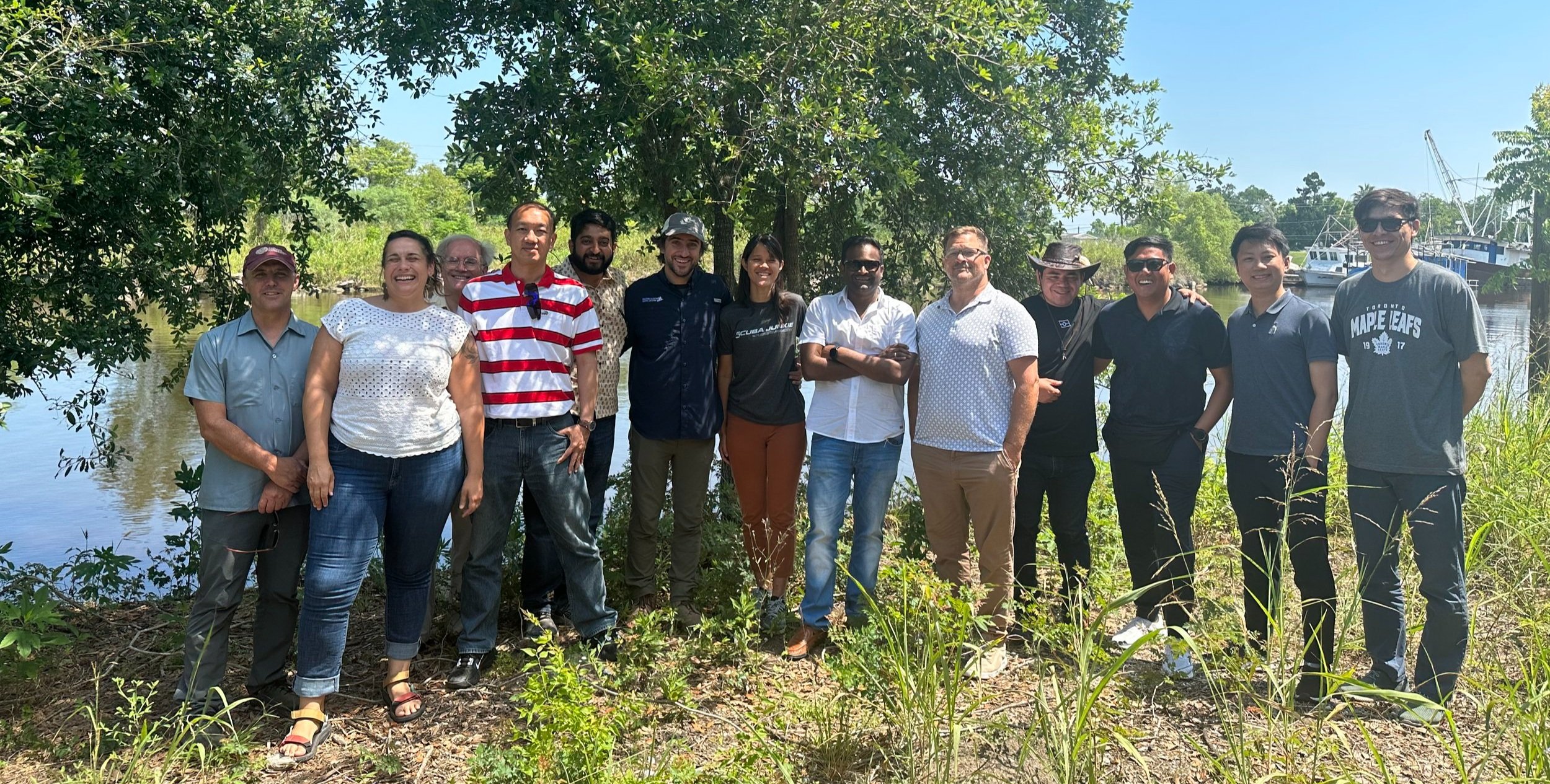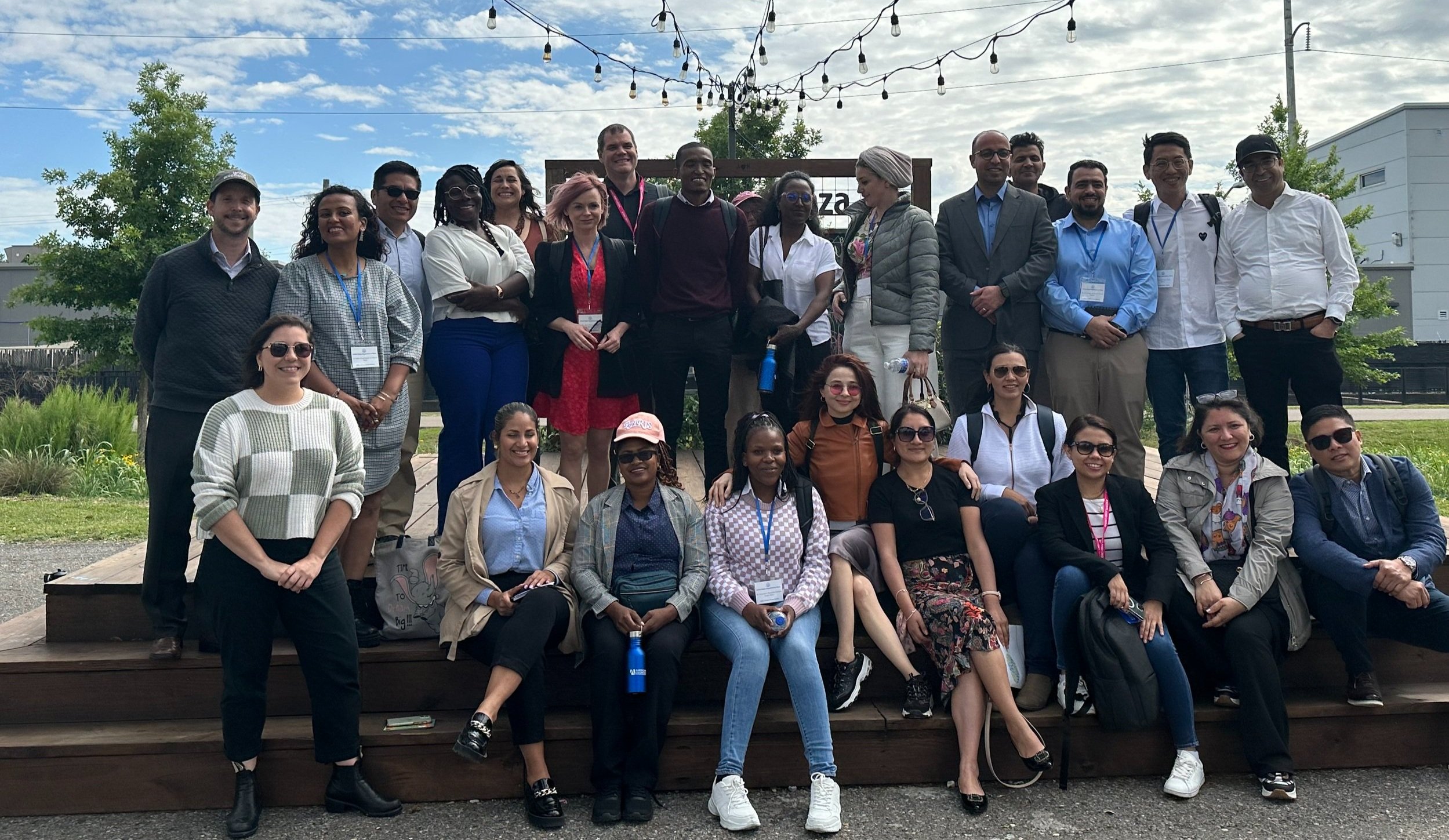2024 GROUPS
DEVELOPMENT OF ALTERNATIVE TRANSPORTATION ROUTES (APRIL)
This project will examine the work of seaports, dry ports, large railway junctions, multimodal transport hubs in the United States. Participants will learn how to effectively manage intense freight traffic without creating congestion and delays. The program will build on Post’s 2023 IVLP program on the same topic, to engage additional key stakeholders who were unable to participate in the previous program and will provide additional insight into effective management of railway traffic.
COUNTRIES: KAZAKHSTAN
GLOBAL PUBLIC HEALTH CHALLENGES(APRIL)
This project supports the Global Health Security Agenda (GHSA): a network of countries, international and non-governmental organizations, and private sector companies working to minimize the emergence and spread of infectious diseases. Participants will examine key practices to manage communicable diseases, including public information campaigns, combating disinformation and misinformation, medical response preparedness, ongoing training for medical and administrative personnel, and strategies for working with international partners during a pandemic.
COUNTRIES: DOMINICAN REPUBLIC, EL SALVADOR, MEXICO, PANAMA, PARAGUAY, PERU
HUMAN AND CIVIL RIGHTS FOR MARGINALIZED COMMUNTIES (APRIL)
This project explores the strategies of human and civil rights practitioners who advocate for the rights of marginalized communities and demonstrates how they present their concerns to government and social influencers. It addresses approaches to defending the rights of religious and ethnic minorities, members of the LGBTQI community, refugees, internally displaced persons, and other vulnerable populations. Participants will explore creative approaches to celebrate diversity, promote inclusive public attitudes, address sensitive issues by working across institutional lines, and expand collaborative networks.
COUNTRIES: ALGERIA, BENIN, BURKINA FASO, CAMEROON, CONGO, COTE D’IVOIRE, GABON, GUINEA, MALI, MAURITANIA, NIGER, RWANDA, SOUTH AFRICA, SOUTH SUDAN
Environmental Engagement and the Economy for the Indo-Pacific(APRIL)
This project explores the efforts of government, civil society, and private-sector actors to promote economic growth while protecting the environment. Participants will meet with federal officials, NGO representatives, green entrepreneurs, and citizen groups working to safeguard the environment. They will observe how actors at the local, state, and federal levels engage in projects that focus locally and globally on topics involving adaptive lifestyles; innovative solutions to industrial and commercial challenges; emerging technologies; and policies related to energy, transportation and carbon emissions, food, agriculture, commerce, and land use. Participants will also explore initiatives to reduce carbon emissions in the transportation sector and U.S. government policy on transitioning to low-emissions technologies.
COUNTRIES: FIJI, INDIA, NEW ZEALAND, PHILIPPINES, SRI LANKA, UZBEKISTAN
BUILDING ngo NETWORKS (APRIL)
This project highlights the role of the non-profit sector in U.S. society and the ways that non-governmental organizations (NGOs) work together to promote an educated, engaged civil society as a cornerstone of democracy. Through visits to non-profit organizations, professional associations, federal agencies, foundations, and public service organizations, participants will examine the influence of NGO networks in the United States in such fields as health, education, human rights, the environment, at-risk youth, and the arts. Participants will explore innovative non-profit collaboration strategies, public-private partnerships, networking best practices, social media campaigns, fundraising, board management, and lobbying efforts.
COUNTRIES: CHAD, EGYPT, IRAQ, KUWAIT, LEBANON, LIBYA, MOROCCO, PALESTINE TERRITORIES, SAUDI ARABIA, TUNISIA, YEMEN
Edward R. Murrow Program for Journalists: New and Traditional Broadcast Media (APRIL)
This project examines the history, structure, and function of broadcasting in the United States and the challenges and opportunities posed by social media. It will address the influence of radio, television, cable, and new technologies in a pluralistic, decentralized, and democratic society. The project also explores how organizations, institutions, and individuals are working to fact check to ensure accuracy in news reporting. Participants will explore the role of the media, including social media, to support democratic institutions and promote community development. The project will also highlight the American philosophical and legal commitments to freedom of expression. As a part of IVLP’s “Edward R. Murrow Program for Journalists” series, this project includes a graduate or professional-level academic workshop focused on broadcast media.
COUNTRIES: ARGENTINA, AZERBAIJAN, BANGLADESH, BARBADOS, BULGARIA, CHILE, CROATIA, ETHIOPIA, GAMBIA, INDIA, IRAQ, JORDAN, KUWAIT, MALAWI, NEPAL, PHILIPPINES, ROMANIA, RWANDA, SAUDI ARABIA, SRI LANKA, TANZANIA, TUNISIA, UKRAINE, VIETNAM
Electoral Participation and Engagement (MARCH)
This project will explore successful methods to strengthen community level organizing to increase voter participation in elections and foster trust in pro-democracy actors. Participants will meet with local government leaders, NGO representatives, community organizers, innovators in government, and political campaign experts, in addition to other public and private organizations actively engaged with local government. Participants will explore best practices in grassroots activism and leadership, as well as educational and social strategies to promote positive civic engagement.
COUNTRIES: VENEZUELA
tesol tEACHERS:American Perspectives on Civics and Society (MARCH)
The purpose of this exchange is to provide international professionals with experiences of diverse American perspectives on civics and societal values in order to increase the cross-cultural understanding of English language learners overseas. Site visits and cultural activities for this exchange should include educational institutions including K-12 school settings, technical/community colleges, and universities as well as governmental, non-profit, and community organizations, especially ones that work with underserved populations.
COUNTRIES: AZERBAIJAN, ARGENTINA, BENIN, BRAZIL, BURKINA FASO, BULGARIA, CUBA, GEORGIA, EGYPT, ETHIOPIA, SERBIA, VENEZUELA
WOMEN AS DRIVERS OF SOCIAL AND ECONOMIC CHANGE (MARCH)
This project explores the role women leaders in politics, business, public service, and civil society play as agents of change and advancement in their communities. Participants will examine how women have led change on social, political, gender, family, youth, and health-related issues. They will meet with women’s organizations and influential women in public service, politics, NGOs, businesses, foundations, schools, and community organizations to discuss their contributions to issues affecting women, families, children, and society at large. They will explore a variety of programs designed to encourage and prepare women to take on leadership roles. The project includes examples of successful public-private sector cooperation and corporate initiatives to foster women’s advancement.
COUNTRIES: ARGENTINA, COLOMBIA, CUBA, HONDURAS, NICARAGUA, URUGUAY, VENEZUELA
Social Entrepreneurs in the United States (mARCH)
This project examines the rise of social entrepreneurship in the United States and how innovation in this sphere can drive social, economic, and environmental change. Social entrepreneurs identify social challenges and apply market-based solutions to organize, create, and manage ventures that engage the community to improve conditions. This project will examine the concept of social entrepreneurship, the emerging academic study of social entrepreneurship, and government initiatives that support civic engagement and innovation. Through examination of successful models of social entrepreneurship, the participants will explore the impact of new and social media on traditional methods of fundraising, grassroots mobilization, and strategic collaboration.
COUNTRIES: CZECH REPUBLIC, EGYPT, IRAQ, LEBANON, NETHERLANDS, ROMANIA, SWITZERLAND, TAIWAN
Human and Civil Rights Advocacy for Marginalized Communities for the Indo-Pacific (fEBRUARY)
This project explores the strategies of human and civil rights practitioners who advocate for the rights of marginalized communities and demonstrates how they present their concerns to government and social influencers. It addresses approaches to defending the rights of religious and ethnic minorities, members of the LGBTQI+ community, refugees, internally displaced persons, and other vulnerable populations. Participants will explore creative approaches to celebrate diversity, promote inclusive public attitudes, address sensitive issues by working across institutional lines, and expand collaborative networks.
COUNTRIES: BANGLADESH, HONG KONG, INDIA, KRGYZ REPUBLIC, KOREA, MALAYSIA, NEW ZEALAND
Preserving Cultural Heritage and Combating Trafficking of Conflict antiquities (january)
This project explores U.S. efforts to protect cultural heritage. It will examine the programs and policies that protect cultural heritage and property rights and the laws that prevent the sale of conflict antiquities in the United States and worldwide. Participants will explore research and conservation techniques, funding mechanisms, advocacy methods, educational outreach efforts, and law enforcement strategies designed to protect vulnerable cultural sites, resources, and artifacts. Visits to museums, historical landmarks, monuments, memorials, national parks, schools, historical and cultural societies, and archival collections will include discussions with academic, site security, and public/private sector experts who will address cultural heritage preservation and protection challenges.
COUNTRIES: EGYPT, JORDAN, QATAR, SAUDI ARABIA, TUNISIA
2023 IVLP Groups
PROMOTING SOCIAL CHANGE THROUGH THE ARTS
This project examines the influential role the arts play in advancing civil society and promoting Social justice. Participants will explore how professional performing and visual artists, educators, and those involved in the arts mentor disenfranchised youth, minority groups, and address social challenges.
COUNTRIES: ALGERIA, AZERBAIJAN, BARBADOS, CAMBODIA, GREECE, HUNGARY, ISRAEL, KUWAIT, MONTENEGRO, NEPAL, NEW ZEALAND, NIGERIA, POLAND, SRI LANKA, TAJIKISTAN, UGANDA, UNITED KINGDOM, WEST BANK, ZIMBABWEThis project examines efforts to address human rights issues and challenges across the Americas.
HUMAN RIGHTS ACROSS THE AMERICAS
COUNTRies: ARGENTINA, COLOMBIA, ECUADOR, GUATEMALA, HONDURAS, MEXICO, NICARAGUA, PANAMA, PARAGUAY, PERU, VENEZUELA
Promoting international religious tourism promotes inclusive economic growth, regional security and stability, and tolerance for diversity. Tourism is one of the fastest growing sectors worldwide, and Pakistan is home to numerous sites of interest to a broad range of religious tourists.
Promoting Tourism to Historic Religious Sites
Country: PakistanParticipants in this project discussed the roles of government, private businesses, organizations, and universities in fostering the sciences and supporting technological advances, met with advocates and investors involved in recognizing, promoting, and developing science and technology, discovered how science and technology diffuse into sectors such as geology, environment, information technology, material science, chemical science, philosophy, and social and humanity sciences, explored the intersection of science and technology in policy and a democratic model of governance, and shared experiences with various U.S. organizations addressing technological and social challenges in nontraditional sectors and under-resourced regions.
SCIENCE AND TECHNOLOGY IN THE U.S.
Country: mongoliaYOUNG LEADERS R.I.S.E.
This project examined leadership strategies and communication skills used to manage political and social challenges while balancing divergent social demands and interests. explored advocacy strategies that facilitate social empowerment and justice, discussed how public-private partnerships foster political and civic engagement, reviewed political, social, and economic policy formulation and the various players who influence the decision-making processes and illustrated how Americans value community service and volunteerism in U.S. communities.
Countries: algeria, bahrain, egypt, jordan, kuwait, libya, morocco, palestine, saudi arabie, tunisia, combatting human trafficking
The goal of this project was to empower Bangladesh prosecutors with insights that can increase prosecutions and convictions for trafficking offenses while respecting due process, and bolster capacity in the justice sector for investigation, prosecution, and adjudication of these crimes.
Country: BANGLADESHwomen & entrepreneurship
This project sought to gain a deeper understanding of the African Growth Opportunity Act (AGOA), highlight the contributions of women to local economies, provide leadership skills development, and examine the importance of internet and social media for business growth.
country: chadu.s. foreign policy
This project discussed foreign policy issues of concern to Europe and the United States, including counter terrorism and security, transatlantic relations, the changing roles of international organizations such as NATO and the United Nations, trans-boundary environmental policy issues, and global trade trends which frame positions in U.S. foreign policy; and exposed participants to the various stakeholders in U.S. foreign policy formulation and to a range of policy views in the public and private sectors.
Countries: albania, denmark, finland, germany, greece, italy, montenegro, norway, spain, entrepreneurship & small business development
This project observed the effectiveness of the business sector in creating jobs and alleviating poverty worldwide, examine the legal and regulatory systems that allow entrepreneurs to flourish, and identify policies that may discourage such enterprises, discussed societal barriers facing entrepreneurs, especially women and other disadvantaged groups, and best practices in overcoming these restrictions, and explored various business models, support mechanisms, and innovations such as micro-lending, multi-level marketing, the use of the internet, and others.
CountrY: syriaadvancing lgbtQIa rights
This project introduced participants to various U.S. government stakeholders and civil society organizations working on issues affecting the LGBTQI+ community, explored best practices for establishing and managing civil society organizations, developing advocacy campaigns, and effectively using volunteers, media, and social media to achieve strategic goals, exposed participants to inclusive approaches in education and academia, and informed participants about best practices in safeguarding and informing LGBTQI+ individuals within refugee groups.
country: lebanonboosting the creative economy through film
This project engaged with filmmakers on technical expertise, such as camera equipment, lighting, camera operations, and film techniques, explored the business side of the film industry, such as studio management, film promotion and distribution, and finances, saw how federal, state and local government works with the film industry to attract film productions, festivals, and businesses to a locale and provide regulatory oversight, connected Saudi participants with U.S. production companies and others with possible interest in building a relationship with the Saudi film industry.
CountrY: saudi arabiaegypt renewable energy development
This project explored universities and the U.S. federal, state and local initiatives to develop the renewable energy sector, learned how public-private partnerships can support government policies to develop the renewable energy sector, explored , and how energy innovation can strengthen local and regional economies.
CountrY: egyptConservation & Biodiversity Protection
This project examined environmental challenges, especially those affecting water quality and forest protection in the U.S, and explored best practices on biodiversity and wildlife management, as well as land and water reserves conservation.
CountrY: MEXICOPromoting Social Change Through Music
This project examined how American musicians raise social awareness, inspire hope, and influence civil society, particularly among disenfranchised youth, assessed effective modes of music marketing using traditional and online media and explored how music genres reflect diversity in U.S. communities.
Countries: Algeria, Azerbaijan, Finland, Haiti, Hungary, Israel, Japan, Mauritius, Mozambique, Nicaragua, Nigeria, Panama, Qatar, Saudi Arabia, Serbia, Taiwan, Tunisia, Venezuela, West BankCommunity, Library, & Youth Engagement
This project explored the importance o community-based partnerships and strategies for promoting volunteer activities, examined the role of community programs that address the digital divide and bridge social and cultural gaps among diverse populations, and illustrated the diverse public services libraries offer.
Countries: Bahrain, Egypt, Israel, Jordan, Morocco, Saudi Arabia, TunisiaClimate Resiliency & Health Security
Countries: Mozambique, Cote d'Ivoire, Tanzania, Zambia, Uganda, Kenya, Botswana, Madagascar, Senegal, South AfricaEnvironmental Engagement & the Economy
This project discussed U.S. efforts to promote improved understanding, assessment, prediction, and response to natural and human-induced disasters, examined the factors, including government policies, that businesses take into consideration as they strive to ensure profitability and growth while being environmentally responsible, observed relationships and alliances among all levels of government with citizen groups and private organizations to address the effects of global environmental challenges and ensure environmental protection and explored effective informational campaigns to reach educators, scientists, decision-makers, and the public about the importance of protecting the environment.
Countries: Australia, India, Malaysia, Philippines, Thailand, Uzbekistan, Vietnamentrepreneurship & small business development
CountrY: IndiaSupporting Women Entrepreneurs
This project examined the role of government, the private sector, business and women’s networks, and non-governmental organizations in promoting the development of women-owned businesses; explored the role of women-owned businesses in driving economic development, democratization and stabilization around the world and highlighted the social, economic and political factors that influence and encourage the development of private enterprise in the United States.
Countries: Argentina, Bolivia, Chile, Cuba, El Salvador, Panama, Paraguay, Peru, VenezuelaSustainable Cities
This project explored best practices in environmentally sound and creative urban planning, the design, and the maintenance of infrastructure systems in urban areas; examined the effect of natural and human made disasters on cities, and considered methods of collaboration among national and international specialists as a means of furthering the resilience of cities.
Countries: Bahrain, Bolivia, Cote d'Ivoire, Egypt, Ethiopia, Guatemala, Jordan, Mexico, Morocco, Panama, Peru, Philippines, Romania, Saudi Arabia, South Africa, Taiwan, Turkey, United Kingdom, Zimbabwe, Palestineadvancing minority rights
This project analyzed the legislative framework that ensures equal rights for minority communities, explored equal access to educational, economic, and healthcare opportunities for members of minority communities, presented different political and social perspectives on ethnic, cultural, gender, racial, and religious minority community rights, and examined U.S. and international initiatives to promote and protect the human rights of minority communities, and review how organizations monitor, influence, and advocate for human and civil rights policy at the local, state, national, and international levels.
Countries: Belgium, Croatia, Lithuania, Romania, Slovakia, Slovenia, Sweden, Turkey, UkraineWomen as drivers of social and economic change
This project examined the role of government, the private sector, business and women’s networks, and non-governmental organizations in promoting the development of women-owned businesses, explored the role of women-owned businesses in driving economic development, democratization and stabilization around the world; and highlighted the social, economic and political factors that influence and encourage the development of private enterprise in the United States.
Countries: Argentina, Bolivia, Chile, Columbia, Dominican Republic, Ecuador, Guatemala, Honduras, VenezuelaThe Climate Crisis: Working Together for Future Generations
This project discussed U.S. efforts to assist the nation and the world to understand, assess, predict, and respond to
human-induced and natural global climate change processes, observed the relationships between and alliances among all levels of government with citizen groups and private organizations to address the effects of global environmental challenges through climate change adaptation models and explore effective informational campaigns to reach educators, scientists, decision-makers, and the public about the causes and consequences of climate impacts on weather, natural resources, air/water quality, and the economy.
Countries: Australia, Brunei, Hong Kong, India, Kyrgyz Republic, Maldives, Nepal, Philippines, Sri Lanka, Thailand, China
